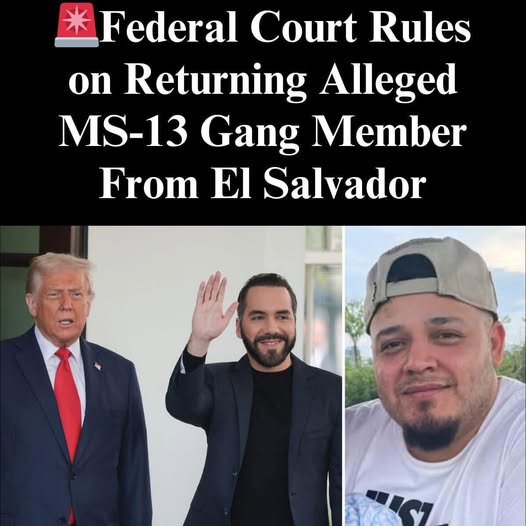
Deported Man Could Return After Court Ruling Shakes Up U.S. Immigration Policy
A federal court decision is turning heads — and it could bring a deported man back to the U.S.
Who Is Kilmar Abrego Garcia?
Kilmar Abrego Garcia, originally from El Salvador, spent years living in Maryland before being deported due to criminal charges, including domestic violence and alleged gang involvement. Following his removal from the U.S., he was transferred to a high-security prison in El Salvador.
So, Why Is He Making Headlines Now?
A lower court recently ruled that Garcia’s deportation may have violated his constitutional rights — and ordered the U.S. government to facilitate his return. The government tried to challenge that decision, but a federal appeals court just denied their request to block it.
For now, the ruling stands, and Garcia could be coming back.
What’s at Stake?
The case isn’t just about Garcia’s criminal record. Judges emphasized a broader concern: whether the U.S. government followed legal procedures when deporting him.
One judge noted that even individuals with serious criminal histories are entitled to constitutional protections. “The government cannot simply stash away residents of this country in foreign prisons,” the judge wrote, “without due process.”
But Garcia Isn’t a U.S. Citizen — Does That Matter?
It does, but maybe not in the way you’d expect.
While Garcia isn’t a citizen and lacks legal immigration status, courts have repeatedly affirmed that due process applies to anyone within U.S. borders — regardless of immigration status.
Why This Case Matters
Immigration experts say this ruling could set a major precedent for how the government handles deportations — particularly in cases where human rights or legal gray areas are involved.
It raises a critical question: Must the U.S. government strictly adhere to due process, even when dealing with noncitizens accused of serious crimes?
What’s the Government Saying?
Attorney General Pam Bondi has made it clear: the government has no plans to allow Garcia back into the country voluntarily. Any final outcome, she said, depends on ongoing legal developments — and cooperation with El Salvador.
The Justice Department has yet to confirm whether it will escalate the case to the Supreme Court.
Bottom Line:
This isn’t just a story about one man. It’s a legal test of how far constitutional rights extend — and whether the U.S. government can bypass due process in the name of public safety.